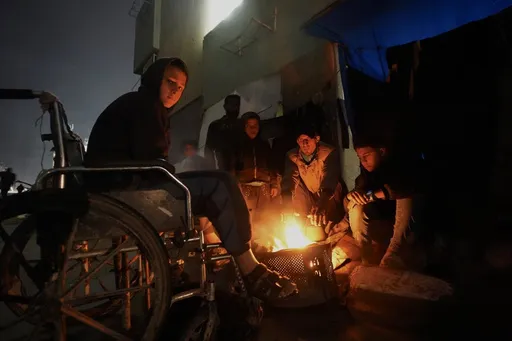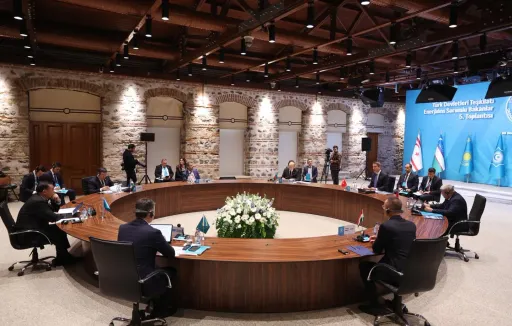By Foday Couch Bayoh
According to the United Nations Office for the Coordination of Humanitarian Affairs (UNOCHA), floods are worsening the plight of vulnerable communities, exacerbating issues like food insecurity, malnutrition, instability, and violence.
UNOCHA's Flooding Situation Overview for West and Central Africa in September 2023 highlights that floods not only result in immediate harm but also have lasting consequences on hygiene, sanitation, and public health.
Flooding represents an unprecedented impact of human actions on nature and a failure of policies, thereby acting as an accelerator of crises for communities already grappling with vulnerabilities. Furthermore, flooding has a profound impact on infrastructure and livelihoods.
The UN has reported that across Africa, a climate crisis is unfolding, leading to the destruction of livelihoods, food security disruptions, heightened conflicts over limited resources, and mass displacement.
Liberia can learn from other countries' experiences to establish mechanisms to prevent potential extreme floods.
Recently, South Africa's Western Cape Province, including Cape Town, experienced extreme floods that claimed at least 11 lives after days of heavy rainfall.
Ethiopia and Somalia faced flash flooding in March 2023 due to heavy rains, leading to dozens of casualties and affecting 300,000 people, as reported by the United Nations Office for the Coordination of Humanitarian Affairs (UNOCHA).
These extreme weather events have devastated homes and livestock in rural communities still recovering from a nearly three-year drought, exacerbating the region's worst hunger crisis in decades.
In 2022, Nigeria witnessed its worst floods in a decade, displacing millions of people and causing substantial economic losses.
One of the worst floods in Africa happened in Libya on September 11 this year, killing thousands of people and damaging infrastructure.
UNHCR called for urgent action on the needs of over 3.4 million displaced individuals and their host communities in the face of destructive flooding in several African countries, including Nigeria, Chad, Niger, Burkina Faso, Mali, and Cameroon.
The health implications are dire as well, with seasonal rains increasing the risk of cholera outbreaks. For example, Malawi, already grappling with its worst-ever cholera outbreak, is facing further challenges due to increased rainfall hindering efforts to control the disease.
Similarly, Madagascar, which had not reported cholera since 2000, saw an upsurge in cases following recent cyclones and flooding.
Dr. Matshidiso Moeti, Regional Director for Africa at the World Health Organization (WHO), pointed out that ongoing cholera outbreaks in Africa are exacerbated by extreme climatic events and conflicts, rendering vulnerable populations even more susceptible.
Liberia now finds itself in a comparable situation. In September 2023, excessive heavy rainfall affected various cities, with the most severe flooding reported in the northeastern counties of Grand Cape Mount, Bong, and Montserrado.
Areas like New Kru Town, Gbarnga City, and urban sections of Monrovia, along with surrounding areas, have been particularly hard hit.
According to the International Federation of Red Cross and Red Crescent Societies (IFRC), urban and coastal floods have affected about 15,200 people and destroyed infrastructure and fishing communities.
The Liberia Meteorological Department of the Ministry of Transport predicts continuous heavy rainfall in September and October 2023 across the country, raising fears of more flooding and its attendant consequences.
According to the IFRC, while no fatalities have been reported so far, many affected families have been displaced, seeking shelter in public buildings or homes of friends and relatives.
The floods have wiped out household items, including stored food, exacerbating economic hardships.
Liberia must take proactive measures to address this growing crisis. Climate change, settlements in flood-prone areas, high poverty rates, and other socioeconomic factors contribute to the vulnerability.
President George Weah's call during the recent UNGA Summit of 2023 underscores the urgency of addressing the climate crisis collectively.
Flooding in Liberia has the potential to cause displacement, food shortages, limited access to clean water, and sanitation challenges, among others.
In August 2007, flooding displaced hundreds of people and cut off water supply to 250,000 individuals in Monrovia in 2007, according to the United Nations' Integrated Regional Information Networks (IRIN).
A year later, IRIN reported that Monrovia experienced the worst floods on record due to intense and heavy rainfall, resulting in the displacement of around 1,000 individuals, according to Liberian authorities. These occurrences have been relatively frequent since then.
Despite existing disaster management policies and plans, little has been done to prevent disasters from erasing development gains and hindering progress towards achieving the Sustainable Development Goals.
Liberia must prioritise flood prevention, not just response. Citizens should be educated about flood causes and solutions, including drainage clearance and engineering interventions.
Flood forecasting is crucial, but Africa faces challenges in this regard due to data scarcity and limited customised models.
Liberia should provide climate information to communities as a preventive measure, enhancing capabilities across the service delivery chain.
Early warning systems like the Global Flood Awareness System (GloFAS) should be embraced. Furthermore, it is imperative to boost the economic well-being of communities, including diversifying their sources of income.
There must be political will to ensure that Liberia develops sustainable resilience against flooding by enhancing policies and their implementation.
Liberia must learn from other countries' experiences and act swiftly to mitigate the impending flood risks highlighted by the Liberia Meteorological Department of the Ministry of Transport for September and October 2023.
As flooding is both a consequence of human activities affecting nature and a failure of policies, human actions like deforestation and inadequate land-use planning must be addressed.
Flooding does not only inflict immediate damage; it also has enduring consequences, particularly in terms of public health, thereby prolonging the suffering of affected communities.
Given the recent experiences of other African countries and its own experiences with floods, Liberia must heed this wake-up call.
Foday Couch Bayoh, Jr. is a Governance and Development expert with profound interest in Global Governance, International Development, Regional Integration, Political Economy, Sustainable Development and the Rule of Law.
Disclaimer: The viewpoints expressed by the author do not necessarily reflect the opinions, viewpoints and editorial policies of TRT Afrika.
























